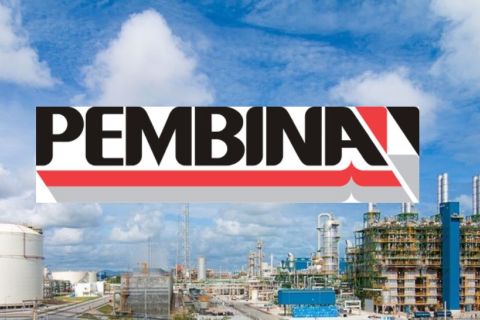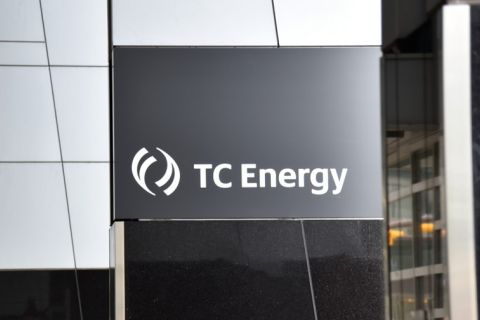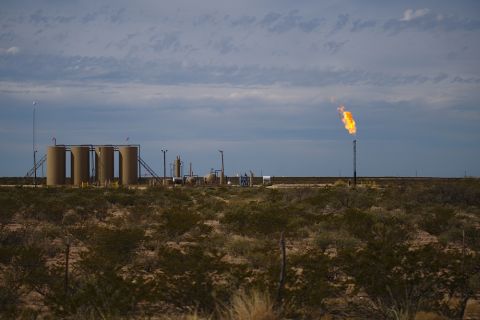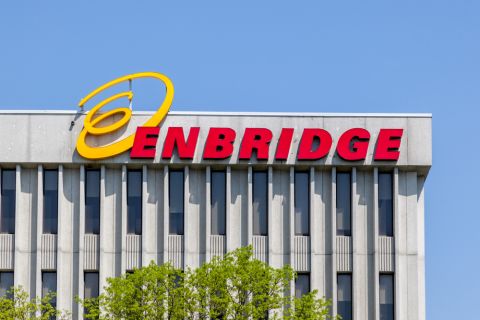The combination of Prize Energy Corp. and Magnum Hunter Resources Inc. nets Magnum some additional credit. Irving, Texas-based Magnum sits presently at 390% net debt to cash flow, according to a John S. Herold Inc. report; Grapevine, Texas-based Prize, itself not so lightly leveraged, is at 180%. Prize emerged in the summer of 1999 as Prize Energy Resources LP, led by Phil Smith, chairman and chief executive officer, and Lon Kile, president, who were with Pioneer Natural Resources Co. Prize bought approximately $215 million worth of properties from Pioneer with cash and convertible preferred shares. Pioneer was to sell the properties to Midland-based Costilla Energy Inc., but it was unable to arrange financing. In February 2000, Prize merged in an all-stock deal with publicly held Vista Energy Resources Inc., becoming a public company with 96 million barrels of oil equivalent of proved reserves (52% oil) and daily production of 20,130 barrels of oil equivalent (46% oil). In September 2000, Pioneer sold its 20% position in Prize at about $21 per share. Other original investors were Natural Gas Partners II, III and V LP. Presently NGP V holds 57% of Prize; III and II, 4.7% and 3.5%, respectively; Smith, 11%; and Kile, 4%. Additionally, Fidelity Research & Capital and a Fidelity mutual fund manage 11% of Prize stock, combined. Meanwhile, Oneok Inc., Tulsa, owns 22.4% of Magnum, whose other major shareholder is Gary Evans, chairman, president and chief executive officer who will retain these titles after the merger, with 7.8%. Janus Capital Corp. owns 4.2% and a Janus mutual fund owns about 4%. Evans says the combination was discussed in 2000 and the timing wasn't right. Now, "I think we all recognize that the next 12 months in our business is going to be rocky." Meanwhile, Magnum is anticipating big bills for platforms, pipelines and other development, as a result of its Gulf of Mexico exploration success. "To get these wells online takes a lot of capital and...[also] we didn't want to become too dependent on the Gulf of Mexico for growth," Evans says. Prize's assets are onshore. The combined company's assets will be in west and south Texas, south Louisiana, in the Gulf of Mexico, western Oklahoma and the Texas Panhandle. Evans says Magnum's debt-to-capitalization (now more than 80%) will fall to 59% to 66%, with the final figure depending on the cash part of the closing. (The cash component of the deal may cost $4- to $70 million.) Some of the cash could come, in theory, from Prize's own borrowing capacity. Magnum has $20 million in availability currently; Prize has $85 million, excluding what is for acquisitions only. The combined company's enterprise value is expected to total $1.2 billion. Its debt will total at least $516 million ($250 million from Prize and $266 million from Magnum) plus what is paid in cash at closing. The companies' reserves at year-end 2000 totaled 960 billion cubic feet of gas equivalent (55% gas), with 38% of the total Magnum's. Since then, Prize bought an additional 12.8 million barrels of oil equivalent from Apache Corp., and Magnum bought 7 million from Mallon Resources Corp. Evans is hoping for an improved credit rating as a result of the merger. "I'm not going to be asking for just one notch, but I guess I'll be happy with whatever I get." Moody's Investors Service and Standard & Poor's are each considering upgrading Magnum. Magnum's $129.5 million of 10% senior notes are rated by Moody's as B2; its senior implied, B1. Moody's prices the deal at $5.10 per barrel of oil equivalent, including reserves the companies acquired in 2001. "Pro forma undrawn availability under the companies' current borrowing bases at that level of debt would be modest, pending arrangement of a new facility, and weak commodity prices could restrain borrowing-base levels," Moody's analysts report. They estimate the postmerger company's pro forma debt on proved developed reserves will be approximately $4.40 per barrel of oil equivalent, down from Magnum's $5.45 on Sept. 30, 2001. Evans says, "Our business needs to have a lot more consolidation. There are other companies, much smaller than us, that need to be consolidated...The industry is getting smaller and smaller and I think will continue to." -Nissa Darbonne, Managing Editor
Recommended Reading
Report: Crescent Midstream Exploring $1.3B Sale
2024-04-23 - Sources say another company is considering $1.3B acquisition for Crescent Midstream’s facilities and pipelines focused on Louisiana and the Gulf of Mexico.
Pembina Pipeline Enters Ethane-Supply Agreement, Slow Walks LNG Project
2024-02-26 - Canadian midstream company Pembina Pipeline also said it would hold off on new LNG terminal decision in a fourth quarter earnings call.
TC Energy’s Keystone Back Online After Temporary Service Halt
2024-03-10 - As Canada’s pipeline network runs full, producers are anxious for the Trans Mountain Expansion to come online.
Waha NatGas Prices Go Negative
2024-03-14 - An Enterprise Partners executive said conditions make for a strong LNG export market at an industry lunch on March 14.
Enbridge Announces $500MM Investment in Gulf Coast Facilities
2024-03-06 - Enbridge’s 2024 budget will go primarily towards crude export and storage, advancing plans that see continued growth in power generated by natural gas.





